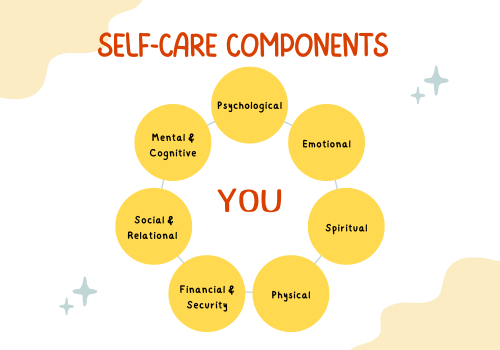Why Entrepreneurs Should Care About Mental Health | The Entrepreneur’s Guide to Prioritizing Mental Health
It’s simple to underestimate the significance of mental health in the fast-paced entrepreneurial market when success is frequently connected with continuous drive and ambition. Prioritizing mental health is important for both personal and professional success, though. This article tries to clarify the role of mental health in entrepreneurship and offer helpful advice for business owners who want to put their mental health first.
The Entrepreneurial Mindset: A Complete Book Try to Understand it
The obstacles that come with becoming an entrepreneur are unique. An entrepreneur’s mental health may suffer as a result of the continual pressure to innovate, the fear of failure, and the need to deal with uncertainty. The unique difficulties experienced by entrepreneurs and their possible effects on mental health must be acknowledged and understood.
The Link Between Successful Business and Mental Health
Contrary to common assumption, there is a connection between mental health and commercial performance. According to research, business owners who are mentally well are more creative, more productive, and make better judgments. Making mental health a top priority may significantly improve an entrepreneur’s overall company success.
Overcoming Stigma: Addressing Entrepreneurship’s Mental Health Morals
The “tough-it-out” mindset that stigmatizes asking for help or displaying vulnerability is frequently linked to entrepreneurship. It is critical to eliminate the stigma associated with mental health in the workplace and promote open dialogue. Entrepreneurs can foster a welcoming workplace that supports mental health by de-stigmatizing asking for help.
Identifying Mental Health Disorders in Entrepreneurs: The Warning Signs

Stress, worry, and burnout are just a few of the mental health issues that entrepreneurs are prone to. It’s critical to notice the early indicators of mental health issues in oneself as well as in others. Early detection and action can stop these problems from getting worse and having an adverse effect on an entrepreneur’s wellbeing.
Strategies for Making Mental Health a top priority
Entrepreneurs should establish self-care routines that enhance wellbeing in order to emphasize mental health. It’s crucial to look after your physical health by getting frequent exercise, getting enough sleep, and eating a balanced diet. Additionally, stress-reduction methods like meditation, mindfulness, and relaxation can aid businesspeople in properly managing their mental health. Prioritizing mental health also requires setting limits, preserving work-life balance, and obtaining professional assistance when necessary.
Strengthening Mental Health in the Entrepreneurial Journey: Building Resilience
For entrepreneurs to overcome the difficulties and disappointments they experience, resilience is a critical quality. Creating coping strategies for stress and anxiety, adopting a growth mindset, and cultivating a solid support network are all part of building resilience. Entrepreneurs may better handle the ups and downs of their business path by improving their mental health.
Building a Supportive Workplace
The ability to foster a work environment that supports employee mental health and wellbeing lies with entrepreneurs. Entrepreneurs may promote a culture of work-life balance, open communication, and support by giving mental health initiatives a high priority among their teams. When employers appreciate their employees’ mental health, a good and effective work environment is produced.
Safety Measures for New Entrepreneurs: Mental Health
Beginning with preventative actions that promote mental health is crucial for new business owners. Healthy routines and practices that promote mental health lay the groundwork for long-term success. New entrepreneurs may actively protect their mental health by implementing tactics like time management, stress management, and self-reflection.
Success Stories of Businesspeople Who Put Mental Health First
Examining actual cases of successful businesspeople who place a high priority on mental health may be motivating and insightful. The company owners who prioritize mental health act as role models by exemplifying how it is possible to prioritize one’s mental health while still succeeding in business. Entrepreneurs may improve their personal lives by applying effective tactics they have learned from their experiences.
Reference : Forbes
The Responsibility of Venture Capitalists and Investors in Enhancing Mental Health
The entrepreneurial environment is significantly shaped by investors and venture capitalists. Investors can help entrepreneurs succeed in the long run by identifying and promoting their mental health. The entrepreneurial ecosystem can benefit from taking into account mental health when making funding decisions and from actively supporting entrepreneurs’ well-being.
A Guide for Business Owners to Support Staff Mental Health
It is essential to identify and manage workplace mental health issues as entrepreneurs grow their teams and businesses. Giving employees access to resources and assistance for their mental health not only increases their general happiness and productivity but also helps the company succeed.
The Effects of Remote Work on the Mental Health of Entrepreneurs
The increasing acceptance of remote employment brings about new difficulties for business owners. Remote business may worsen emotions of loneliness, muddy the lines between work and personal life, and raise stress levels. For entrepreneurs, understanding the particular mental health issues presented by remote work and putting those issues into practice are important.
Self-Care and Ambition: Finding the Right Balance
Ambition is a driving force for entrepreneurs, but it should not come at the expense of self-care. Maintaining a healthy perspective on success involves balancing ambition with self-care. Strategies such as setting realistic goals, practicing self-compassion, and nurturing personal relationships can help entrepreneurs find the sweet spot between ambition and well-being.
Breaking the Cycle: Preventing Entrepreneurial Depression
Burnout is a common phenomenon among entrepreneurs, characterized by chronic exhaustion and diminished motivation. Understanding the causes and symptoms of burnout is essential for prevention. Implementing preventive measures such as time management, regular breaks, and self-care routines can help entrepreneurs avoid burnout and maintain their mental well-being.
RELATED TOPICS : Create a Business Plan
The Entrepreneurial Model for Mental Health Investment
Entrepreneurs as a whole may benefit from putting their mental health first, and it also makes excellent financial sense. Research has shown that investing in mental health initiatives can lead to higher productivity, increased employee engagement, and improved business outcomes. By creating a mentally healthy work environment, entrepreneurs can reap the financial benefits.
Resources and Policies for Entrepreneurs with a Mental Disorder
Numerous resources and organizations exist to support mental disorder in entrepreneurship. It is important for entrepreneurs to be aware of these resources and leverage them to enhance their mental well-being. Additionally, advocating for better policies and support networks can contribute to the overall improvement of mental health in the entrepreneurial community.
FAQs : Entrepreneurs Should Care About Mental Health
1: What is the connection between mental health and business success?
Mental health and business success are closely intertwined. Good mental well-being enhances productivity, decision-making, and creativity, thereby positively impacting an entrepreneur’s overall business performance.
2: How can entrepreneurs overcome the stigma surrounding mental health?
Entrepreneurs can overcome the stigma by fostering open conversations, promoting a supportive work environment, and destigmatizing seeking help for mental health challenges.
3: What are some self-care practices for entrepreneurs?
Self-care practices for entrepreneurs include physical well-being through exercise, sleep, and nutrition, as well as stress management techniques like meditation, mindfulness, and relaxation.
4: What are some signs of burnout that entrepreneurs should be aware of?
Signs of burnout may include chronic exhaustion, decreased motivation, increased cynicism, diminished productivity, and a decline in overall satisfaction with work. Recognizing these signs and taking appropriate action is crucial to prevent further deterioration of mental health.
5: How can investors support the mental health of entrepreneurs?
Investors can contribute to the mental health of entrepreneurs by incorporating mental health considerations into funding decisions, advocating for mental well-being, and supporting initiatives that prioritize entrepreneurs’ mental health.
Conclusion
Prioritizing mental health is not only a personal responsibility but also a strategic choice for entrepreneurs. By recognizing the importance of mental well-being and implementing the strategies outlined in this guide, entrepreneurs can enhance their overall happiness, well-being, and business success. Remember, taking care of your mental health is an investment that yields invaluable returns.
References :
National Alliance on Mental Illness (NAMI) – NAMI offers a range of resources and support for individuals living with mental illness, including entrepreneurs. They have a dedicated page on their website that provides information on mental health resources for entrepreneurs.
Mental Health America (MHA) – MHA is a nonprofit organization that provides resources and support for people living with mental illness. They have a specific program called “Entrepreneurship and Mental Health” that provides resources and tools for entrepreneurs to prioritize their mental well-being.
The Center for Workplace Mental Health – The Center for Workplace Mental Health is a nonprofit organization that provides resources and support for employers and employees to prioritize mental health in the workplace. They offer a range of tools and resources specifically for entrepreneurs.
Disclaimer: The information provided in this article is for educational purposes only and should not be considered a substitute for professional medical or mental health advice. Always consult with a qualified healthcare provider for personalized guidance regarding your mental health.
I (Susanna) was inspired to start “Best Way to Make Money Online” by my passion for entrepreneurship and my desire to provide practical advice and strategies for individuals seeking financial success in the digital realm. I believe in the power of collaboration and sharing ideas, emphasizing the importance of knowing one’s purpose beyond just profit. My background in language learning and online education has equipped me with the skills and knowledge to create a platform that empowers others to navigate the online landscape effectively and achieve their financial goals.

